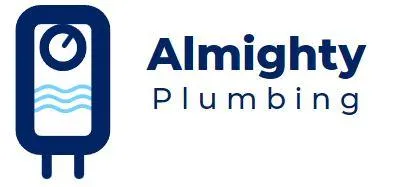Water Heater Repair: Essential Raleigh Troubleshooting Tips
Dealing with problems with your home's water heater can be highly irritating and expensive. Our comprehensive guide offers practical solutions and intelligent repair advice to assist you in resolving common water heater issues. Whether you're struggling with a persistently extinguishing pilot light or an unexpected leakage, we have the perfect solutions for you.

How does a water heater work?
A water heater is an essential home appliance that provides hot water for various domestic activities. It works by utilizing a heating mechanism to raise the temperature of the water stored within its tank. When you turn on a hot water faucet in your home, cold water enters the water heater through a supply line. Inside the tank, there is a heating element or a gas burner that heats up the water. As the water heats up, it rises to the top of the tank and is then delivered to your faucets and showers. At the same time, cold water enters the bottom of the tank to be heated again. This cycle continues until the desired temperature is reached or until the water heater runs out of hot water. Water heaters come in different types, such as tankless, electric, and gas models, each with their own unique heating mechanism. Understanding how a water heater works can help you effectively operate and maintain this crucial appliance.

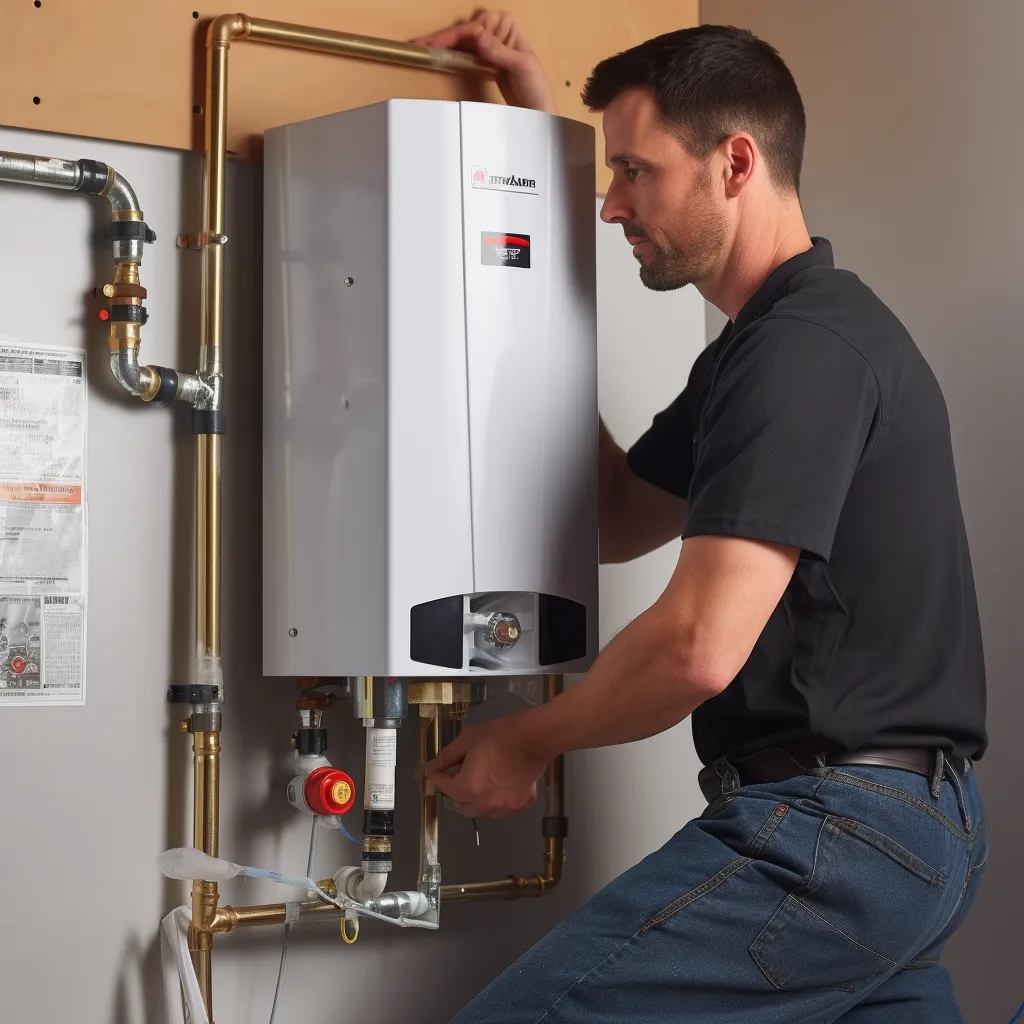
Proper water heater maintenance is essential
To ensure a steady supply of hot water and prevent any unexpected breakdowns, it is crucial to properly maintain your water heater. Implementing regular maintenance measures, such as annual draining and flushing, can effectively prevent the build-up of sediment within your water heater, ultimately extending its lifespan. Additionally, it is essential to regularly inspect the temperature and pressure relief valve to ensure efficient functionality and to prioritize safety. By consistently following these simple maintenance practices, you can ensure that hot water is readily available whenever you require it.
What are common signs a water heater needs to be repaired or replaced?
There are several common signs that indicate the need for water heater repair or replacement. By recognizing these signs early on, homeowners can avoid major issues and ensure the uninterrupted supply of hot water. Here are some key indicators to look out for:
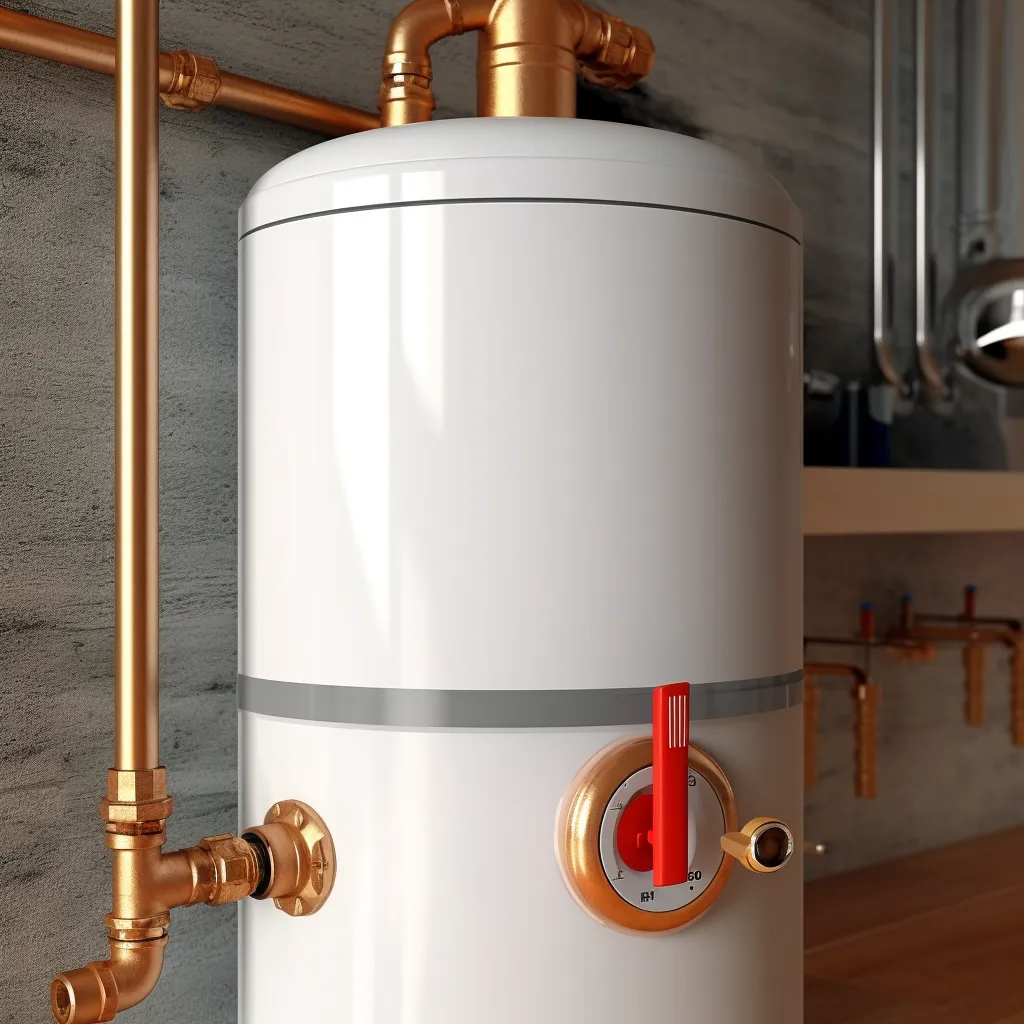
Insufficient or Lukewarm Water: If you notice that the water from your tap is consistently not heating up to the desired temperature or there is a decrease in hot water supply, it could be a sign of a problem with your water heater. Sediment buildup or a faulty heating element are common causes of this issue.
Strange Noises: Unusual noises such as banging, rumbling, or popping coming from your water heater can be an indication of sediment buildup. Over time, sediment can settle at the bottom of the tank, causing the water heater to work harder and produce these noises.
Leaks or Pools of Water: Any signs of water leakage around the water heater should not be ignored. Leaks can occur due to various reasons, including a damaged tank or faulty connections. Ignoring such leaks can lead to bigger issues like flooding or severe water damage.
Age of the Water Heater: The age of your water heater is an important factor to consider regarding repair or replacement. On average, a water heater can last between 8 to 12 years, depending on usage and maintenance. If your water heater is nearing or surpassing this age range, it may be time to consider a replacement.
Rusty or Discolored Water: If you notice rusty or discolored water coming from your hot water faucet, this could indicate internal rusting of the water heater. Rust and corrosion can affect the tank's integrity, leading to leaks and other potential problems.
Consistent Repair Needs: If you find yourself frequently calling a technician for water heater repairs, it may be a sign that the unit is nearing the end of its lifespan. Continuous repair costs can quickly add up, making replacement a more cost-effective option in the long run.
Recognizing these common signs can help Raleigh homeowners address water heater issues before they become major problems. Regular maintenance and professional inspections can also extend the lifespan of a water heater and ensure it functions optimally.
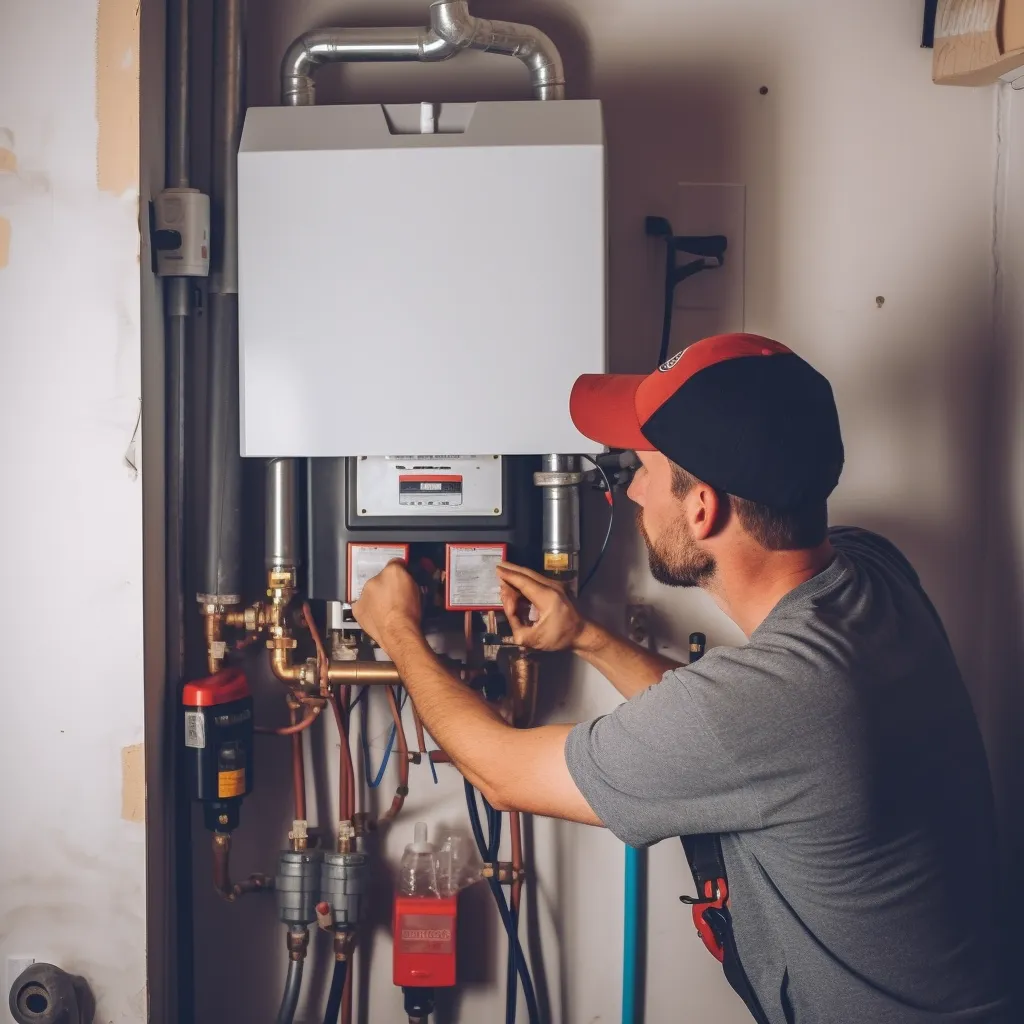
What are the possible causes of water heater malfunctions?
When it comes to water heater malfunctions, there are several potential causes to consider. Faulty thermostats, electrical issues, and sediment build-up are just a few examples of what can lead to problems with your water heater. While you may be able to address small issues on your own, it's important to recognize that a malfunctioning water heater could be a sign of larger problems within your home's systems.
Ensuring uninterrupted heating and avoiding unexpected breakdowns requires regular maintenance and vigilance to warning signs. By taking proactive measures and staying attentive, you can keep your heating system running smoothly.
To ensure the optimal performance of your water heater, it is highly advisable to adhere to a regular maintenance schedule and promptly address any arising issues. If you find yourself unsure or if the problem continues, it is strongly recommended to seek the help of a professional. Their expertise will aid in identifying and resolving the root causes of the water heater malfunction. By addressing these issues promptly, you can guarantee the reliability and efficiency of your water heating system in the long run.
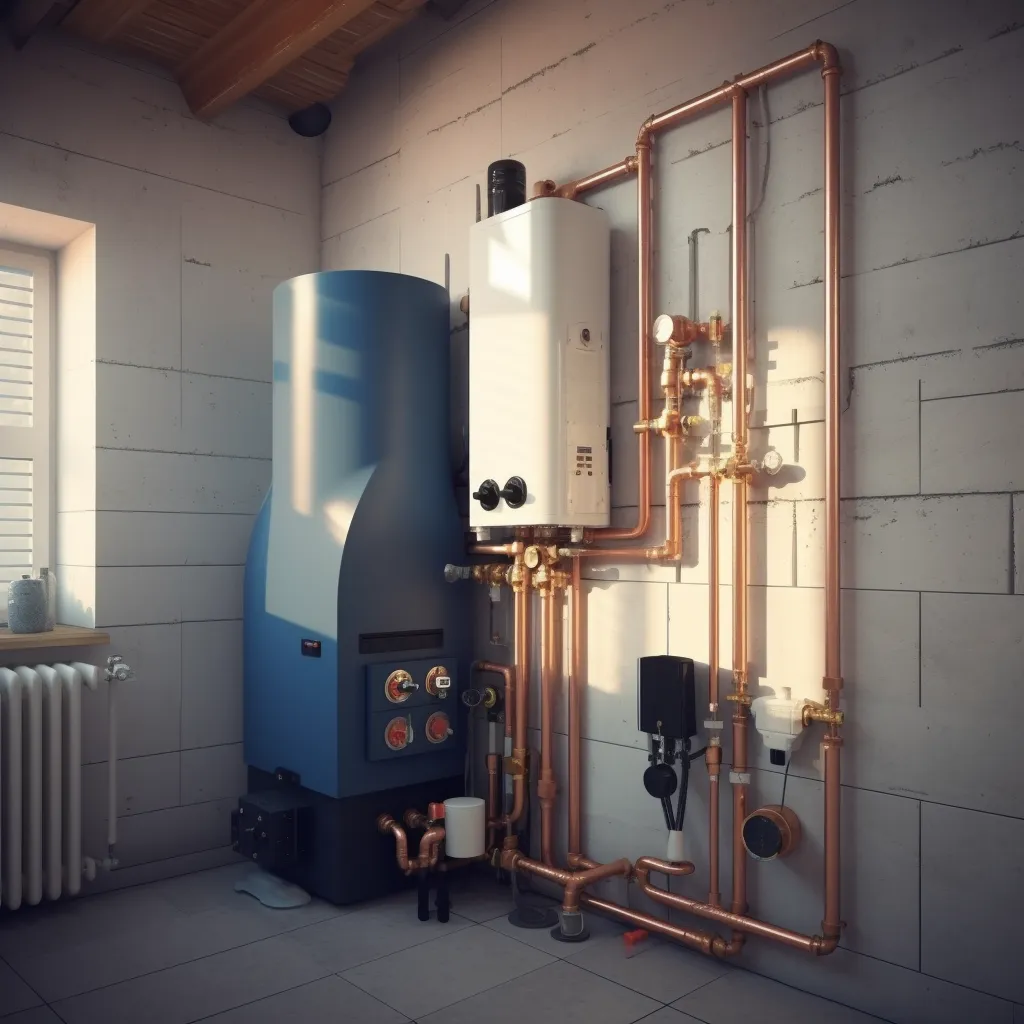
Check the temperature setting on your water heater
It is important to regularly check the temperature setting on your water heater. By doing so, you can ensure that the water temperature is set to a safe and comfortable level. To check the temperature setting, locate the control panel on your water heater. This is usually located at the front or side of the unit. Use a screwdriver or other appropriate tool to remove the panel cover. Once the panel is removed, you will see a thermostat dial or digital display. Adjust the temperature setting as needed. The recommended temperature for most households is around 120 degrees Fahrenheit (49 degrees Celsius). This temperature is considered safe for daily activities such as bathing and washing dishes. However, if you have young children or elderly individuals in your household, you may want to consider setting the temperature slightly lower to prevent accidental scalding. Remember to reattach the panel cover once you have made the temperature adjustment. Regularly checking and adjusting the temperature setting on your water heater can help ensure the safety and comfort of your household.
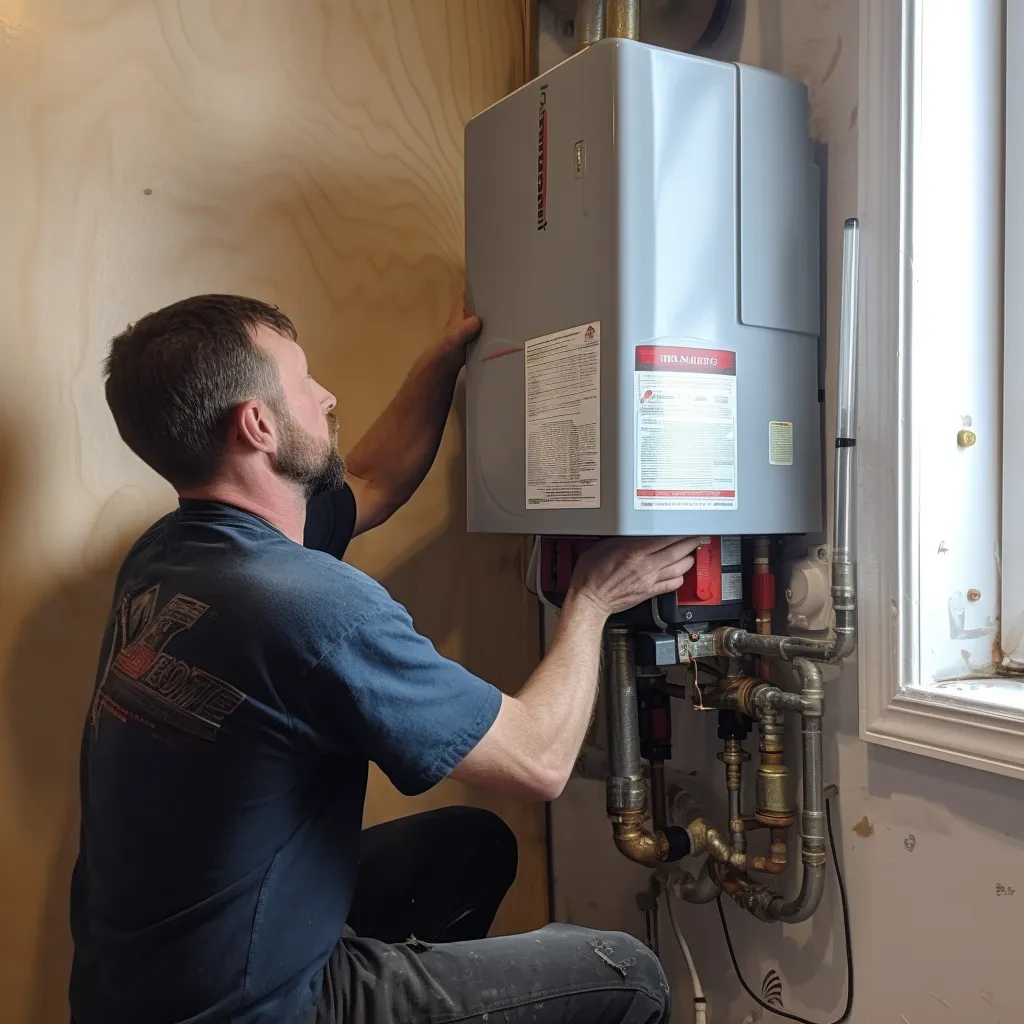
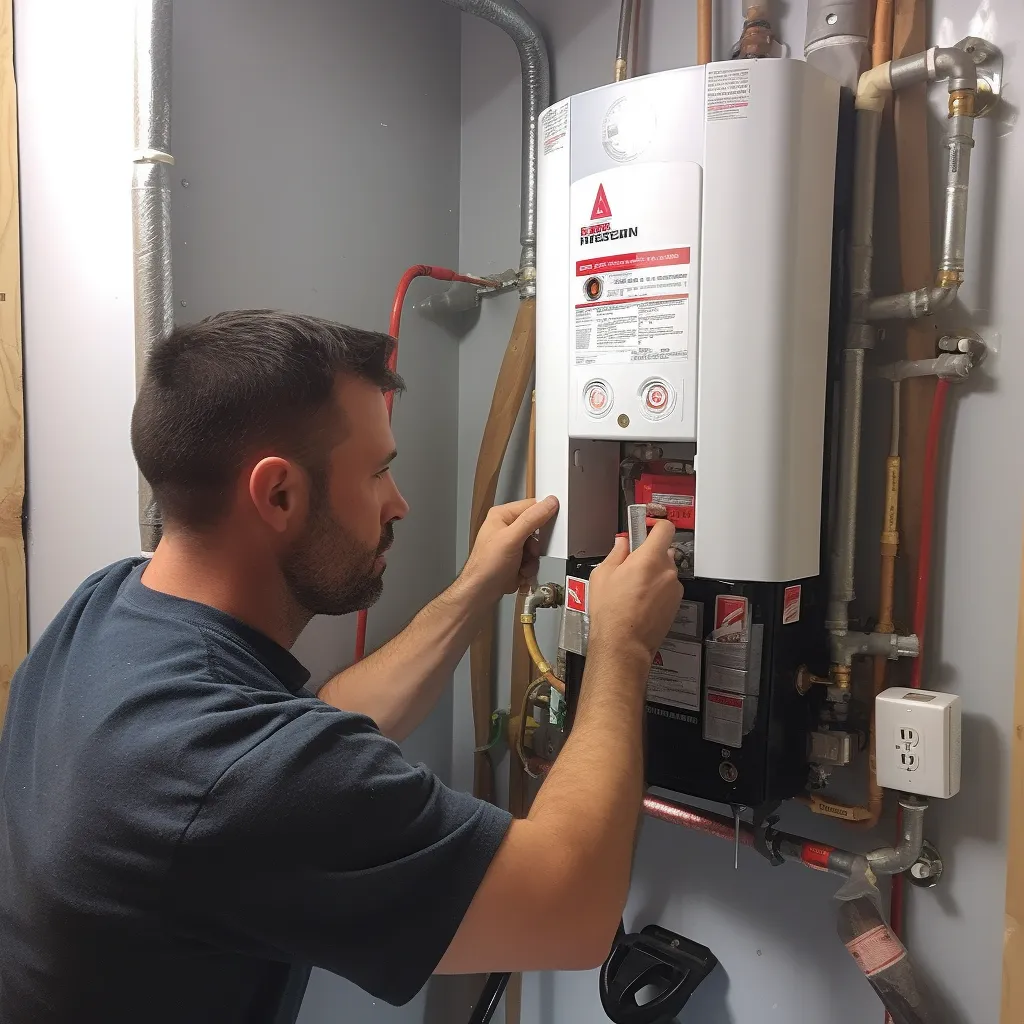
Perform regular visual inspections
Performing regular visual inspections is an essential aspect of ensuring the proper functioning and safety of a particular system or equipment. These inspections involve visually examining various components, parts, and areas to detect any signs of damage, wear and tear, or any other issues that may require attention. The objective of regular visual inspections is to identify potential problems at an early stage, allowing for timely repairs or maintenance to prevent further damage or malfunction. By regularly observing and assessing the condition of the equipment, any anomalies or abnormalities can be promptly addressed, minimizing the risk of costly repairs or system failures. During visual inspections, attention should be paid to various aspects such as loose or damaged connections, leaks, cracks, corrosion, abnormal vibrations or noises, signs of overheating, and any other indicators of performance or safety issues. It is crucial to follow a comprehensive checklist tailored to the specific equipment or system being inspected to ensure that all crucial areas are examined meticulously. By incorporating regular visual inspections into a maintenance program, potential problems can be identified and resolved early, leading to improved reliability, enhanced performance, and increased safety. This proactive approach allows for efficient maintenance planning and budgeting, minimizing downtime and maximizing the lifespan of the equipment or system.
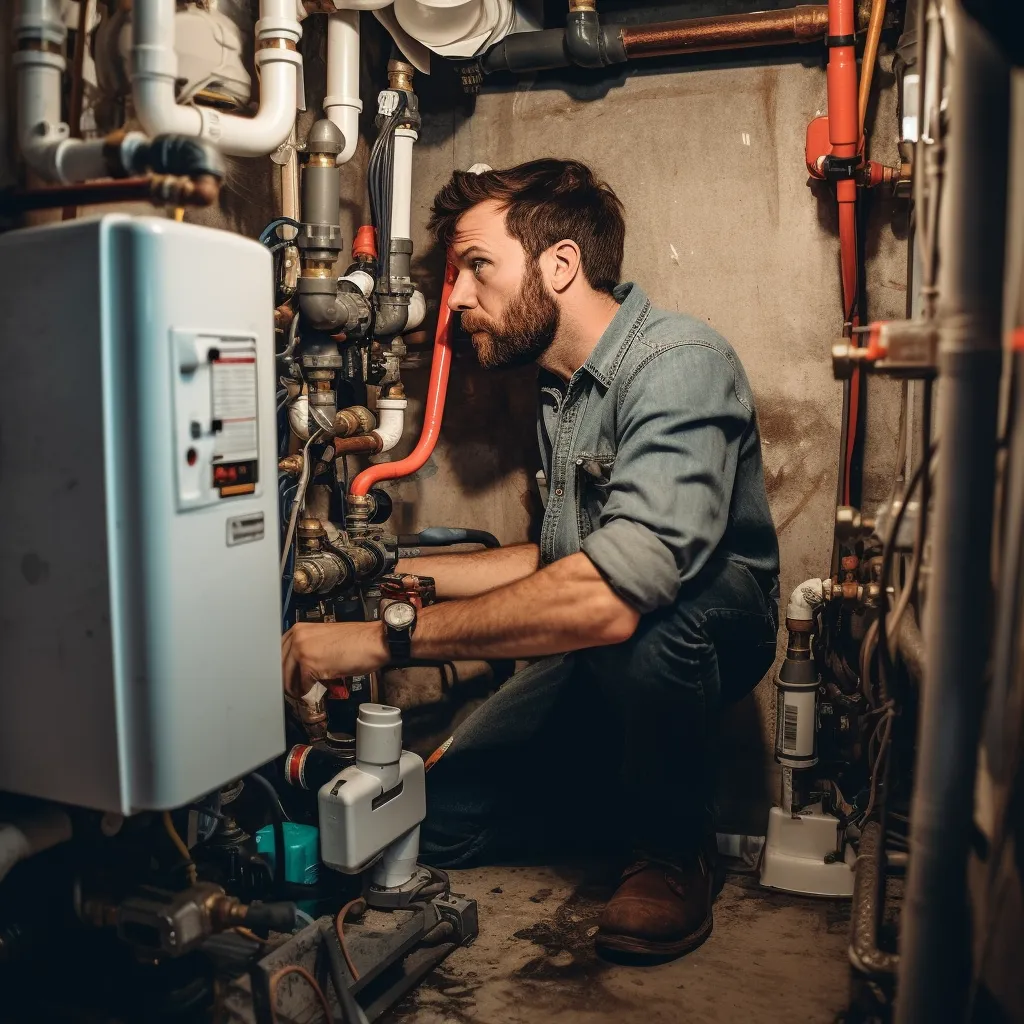
Test the water heater pressure relief valve to make sure it works
To ensure the proper functioning of your water heater's pressure relief valve, it is important to conduct a simple test. Testing the pressure relief valve ensures that it is in good working condition and can effectively prevent excessive pressure buildup within the water heater. Testing the valve on a regular basis, such as once every six months, can help ensure the proper functioning of your water heater's pressure relief valve. If you encounter any issues or if you are unsure about the test, it is recommended to consult a professional plumber for assistance.
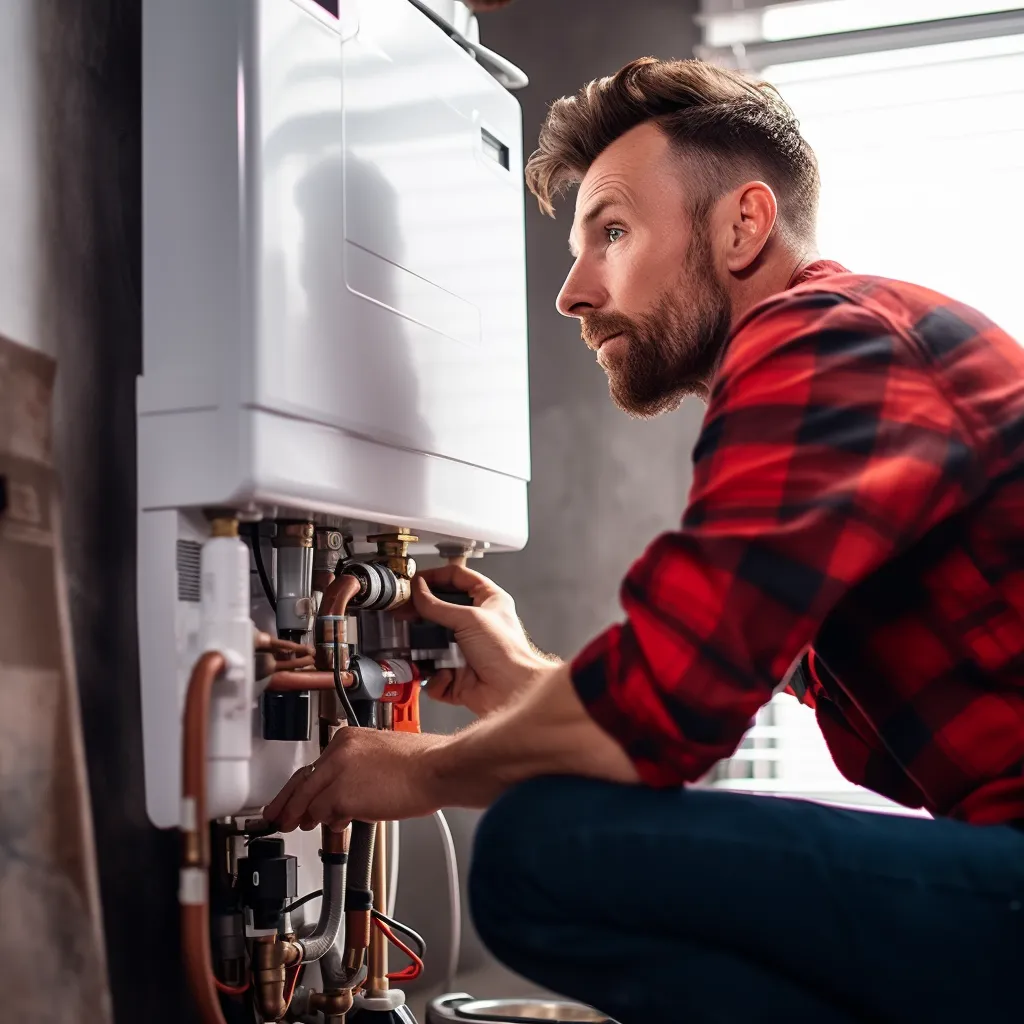
Check for signs of rust and corrosion around the water heater tank
It is important to regularly inspect your water heater tank for signs of rust and corrosion. Rust and corrosion can develop over time, leading to leaks and other potential issues. By checking for these signs, you can catch any problems early on and prevent further damage.
Taking proactive steps to detect and address rust and corrosion in your water heater is crucial for preventing leaks and increasing its lifespan. However, it is essential to understand that dealing with rust and corrosion requires the knowledge and skills of professionals. If you happen to notice any indications of rust or corrosion while inspecting your water heater, it is highly recommended to seek the help of experienced professionals. They possess the necessary expertise to effectively handle the situation and keep your water heater in optimal condition. By entrusting the task to skilled professionals, you can ensure the longevity and performance of your water heater.
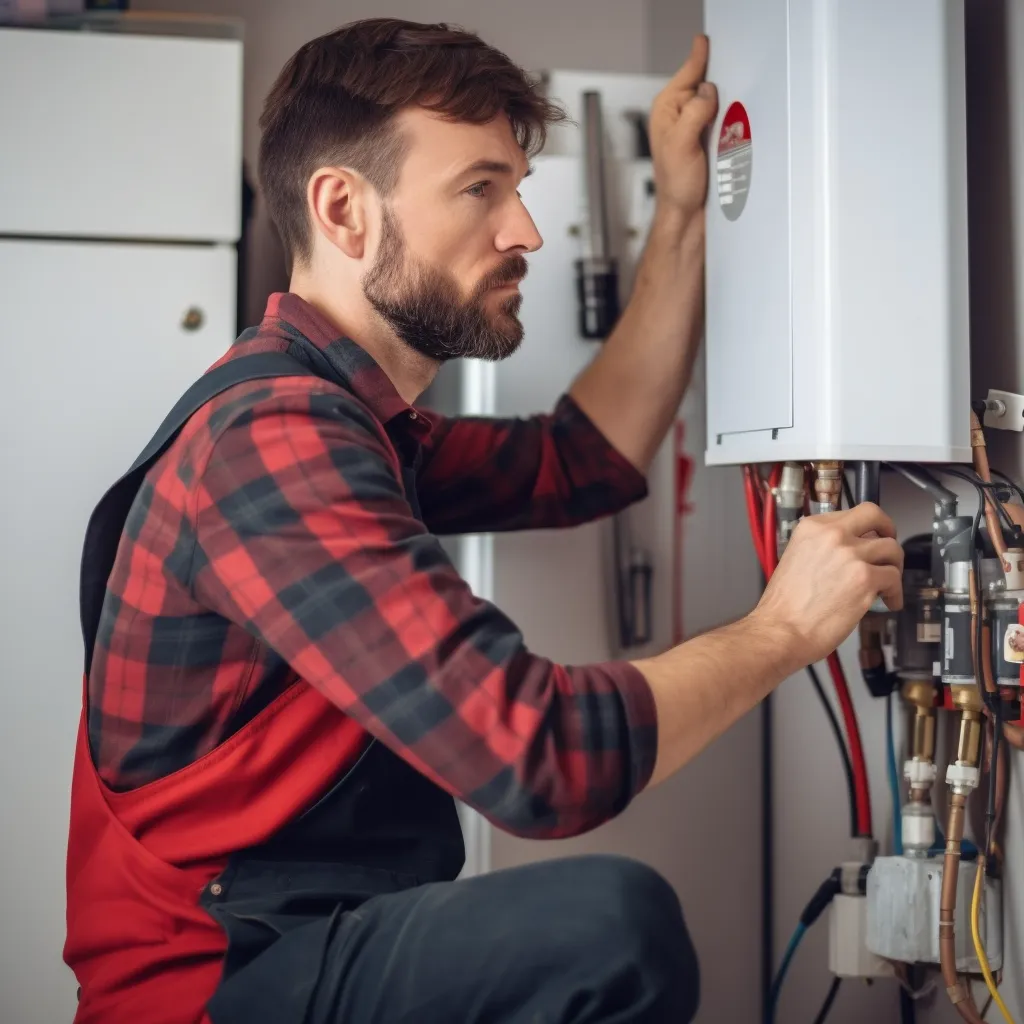
Water heater connections should be tight and secure
It is important to ensure that the connections of your water heater are tight and secure. This is crucial for the proper functioning and safety of the appliance. Loose or faulty connections can result in leaks, loss of efficiency, and even potential hazards such as floods or electrical issues. Therefore, it is recommended to regularly inspect and tighten the connections of your water heater to prevent any potential problems.
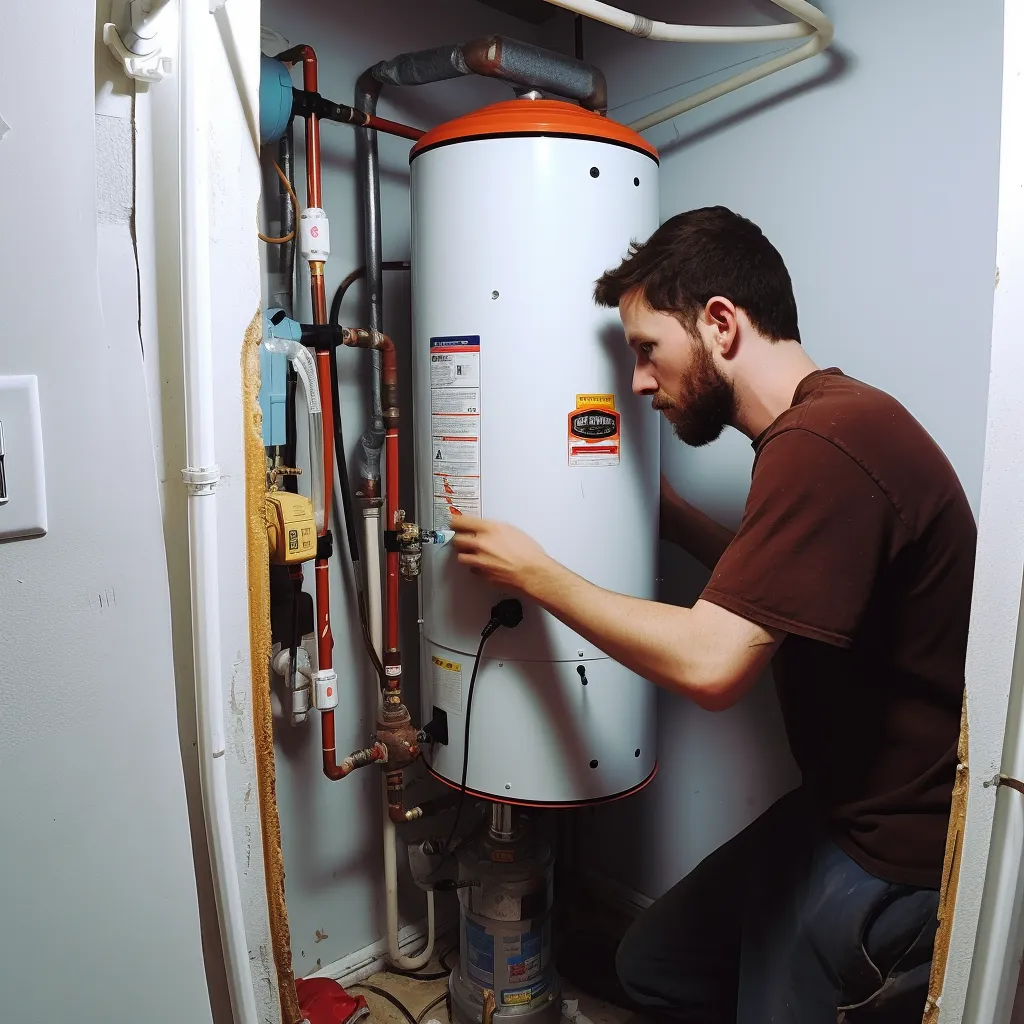
Keep the water heater and pipes free of sediment buildup
To ensure the efficiency and longevity of your water heater, it is crucial to keep both the water heater and pipes free from sediment buildup. Sediment buildup can occur over time, as minerals and other impurities settle at the bottom of the water heater tank and accumulate in the pipes. This buildup can impede the heating element's effectiveness and restrict water flow, ultimately resulting in decreased energy efficiency and potential damage to the system. Regular maintenance and a few simple steps can help prevent sediment buildup and its associated problems. First, it is recommended to flush the water heater at least once a year. This process involves draining the tank to remove any sediment that has settled at the bottom. By doing so, you can ensure that the water heater operates at its optimal level and prevents any sediment from clogging the pipes. In addition to annual flushing, installing a sediment filter on the water heater inlet can help trap particles before they enter the tank. This helps to prevent sediment accumulation and prolong the lifespan of your water heater. Make sure to clean or replace the filter regularly to maintain its effectiveness. Another preventive measure is to consider the quality of the water entering your water heater. If you have particularly hard water, which contains high levels of minerals, installing a water softener can help reduce sediment buildup. This is because water softeners remove minerals like calcium and magnesium that contribute to sediment formation.
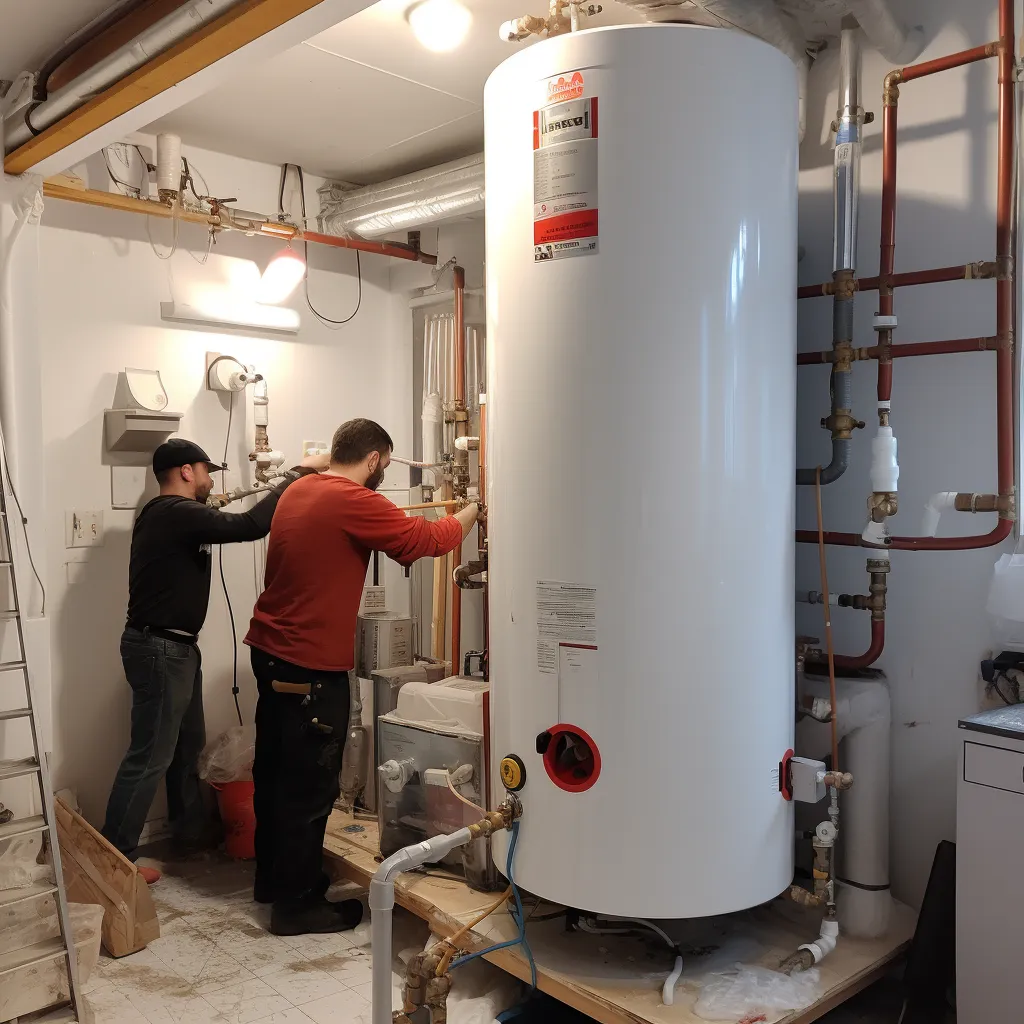
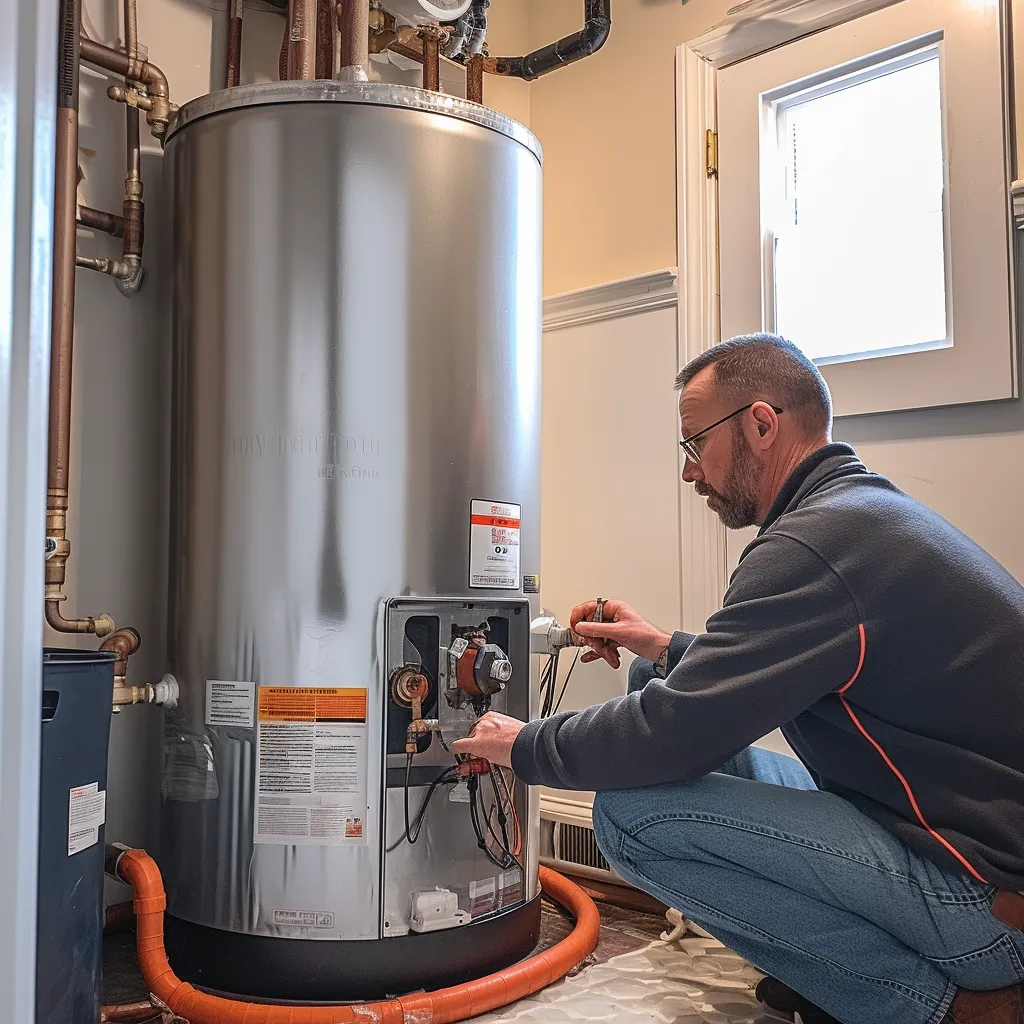
Keep the water heater burner assembly clean
It is crucial to maintain a clean water heater burner assembly to ensure optimal performance and efficiency. Regular cleaning of the burner assembly helps to prevent the accumulation of dust, dirt, and debris that can hinder the burner's ability to generate heat. A clean burner assembly also reduces the risk of a malfunction or the development of harmful gases, such as carbon monoxide. To keep your water heater running smoothly, schedule routine cleanings and inspections of the burner assembly by a qualified professional.
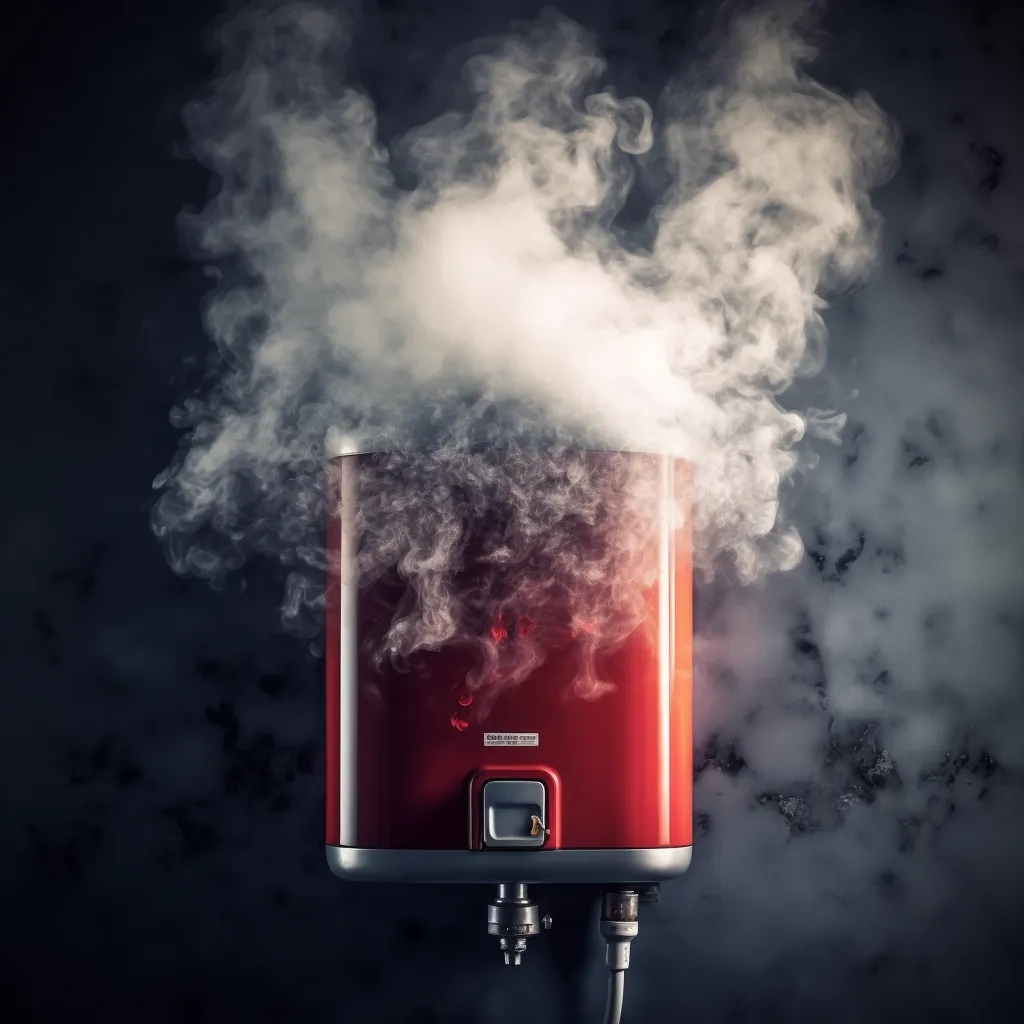
Research the variety of water heater options available
Discover the wide range of water heater options available to meet your needs and find out how you can maintain each type to ensure its longevity and efficiency.
One popular choice is the traditional tank water heater. This type of water heater stores a large amount of hot water in a tank, ready for use whenever needed. To keep your tank water heater in excellent condition, it's important to regularly drain and flush the tank to remove any sediment buildup that can affect its performance.
Another option is the tankless water heater, which heats water on-demand as it flows through the unit. These heaters are energy-efficient and provide an endless supply of hot water. To maintain a tankless water heater, it is recommended to flush it regularly to remove any mineral deposits that can clog the unit and affect its functionality.
If you're looking for an eco-friendly alternative, a solar water heater may be the perfect choice. These systems use energy from the sun to heat water, reducing your carbon footprint and saving on energy costs. To keep your solar water heater operating efficiently, it's important to clean the solar panels and ensure they are free from dirt or debris that can hinder their ability to capture sunlight.
For those who prefer a more cost-effective option, an electric water heater is worth considering. These heaters use electricity to heat the water and are relatively easy to maintain. To prolong the life of your electric water heater, check the heating elements regularly and replace them if necessary.
Finally, there are hybrid water heaters that combine the benefits of a tankless and traditional tank water heater. These units are energy-efficient and offer a large storage tank for ample hot water supply. To optimize the performance of a hybrid water heater, it is important to check the air filters and clean them periodically.
By familiarizing themselves with different water heater types and understanding their specific maintenance needs, Raleigh homeowners can prevent potential problems. Taking the time to learn about their system and following proper maintenance practices will extend its lifespan and ensure it continues to operate smoothly.
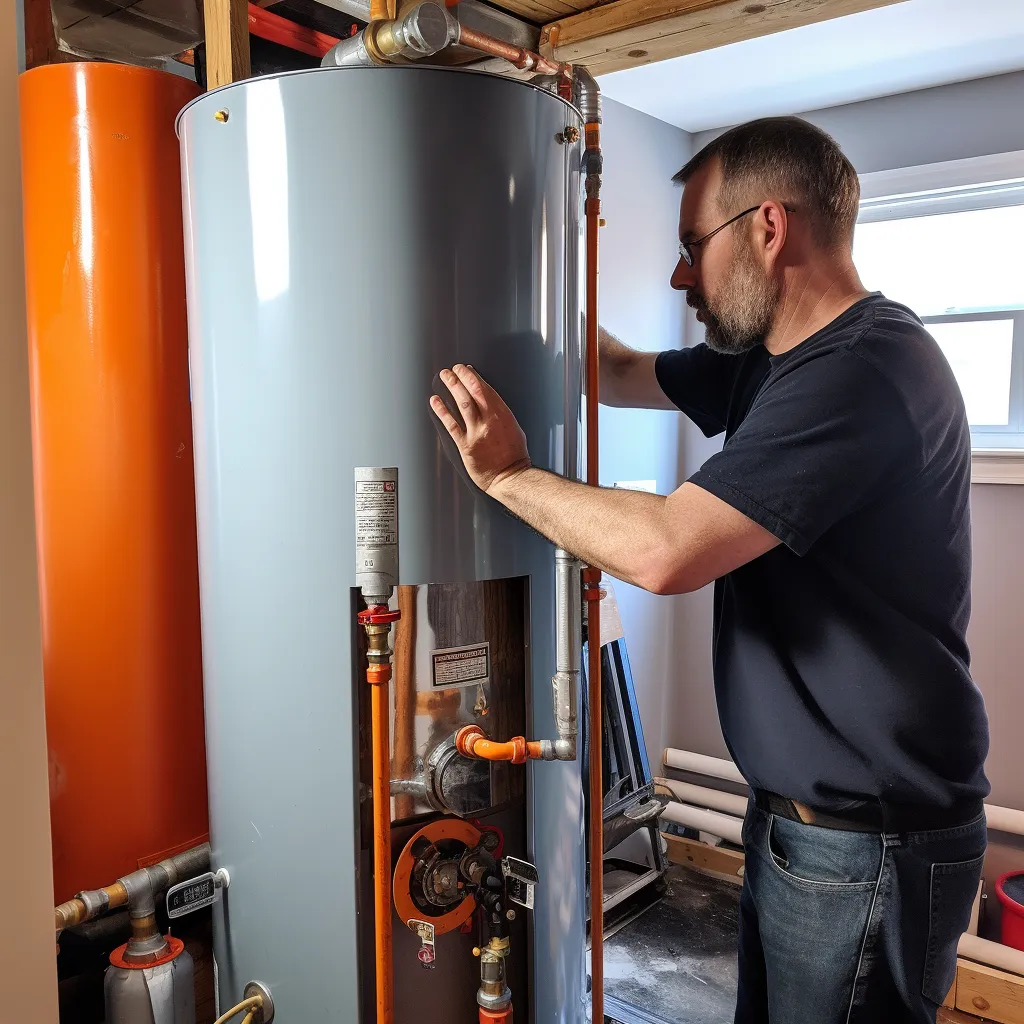
Troubleshooting tips to help you identify water heater problems
If you're encountering problems with your water heater, such as a lack of hot water, temperature fluctuations, unusual noises, or leaks, you can attempt some troubleshooting steps before reaching out to a professional. Take a look at the heating element, confirm the thermostat settings, flush out any sediment, and thoroughly inspect for any leaks. By following these basic procedures, you might be able to identify and even fix the issues, which could save you both time and money.
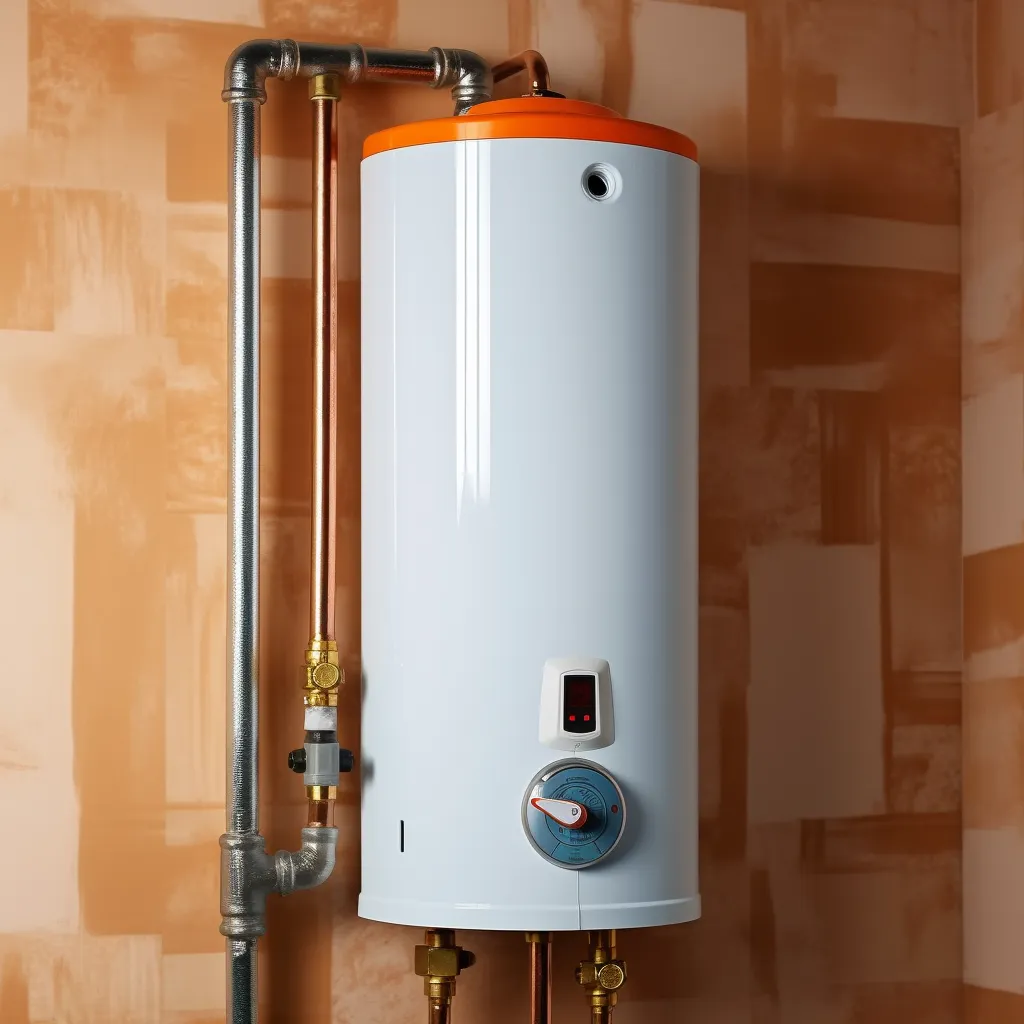
Benefits of hiring a licensed water heater professional
Hiring a licensed water heater professional comes with a multitude of benefits:
One of the most significant advantages is their expertise and knowledge in dealing with water heaters. licensed professionals have undergone rigorous training and are well-equipped to handle any issue that may arise with your water heater.
By hiring a licensed professional, you can be assured that the work will be done efficiently and effectively. They are familiar with all types of water heaters and can quickly diagnose and fix any problems, saving you time and money in the long run. They have access to the latest tools and equipment necessary for repairs and installations.
Another benefit of hiring a licensed professional is the assurance of quality work. They adhere to strict industry standards and regulations, ensuring that the job is done to a high standard. This will give you peace of mind knowing that your water heater is in capable hands and will function optimally.
Hiring a licensed professional often comes with a warranty or guarantee on their work. This means that if any issues arise after the repair or installation, they will take care of it without any additional cost to you. This offers you added protection and confidence in the services provided.
Licensed professionals also prioritize safety. Water heaters can be potentially dangerous if mishandled, especially gas-powered ones. Licensed professionals have the necessary expertise to work safely and prevent any accidents or hazards during the installation or repair process.
Hiring a licensed water heater professional can save you money in the long run. They can help improve the energy efficiency of your water heater, reducing your energy bills. Additionally, their expertise ensures that repairs are done correctly the first time, avoiding any recurring issues that may result in costly repairs down the line.
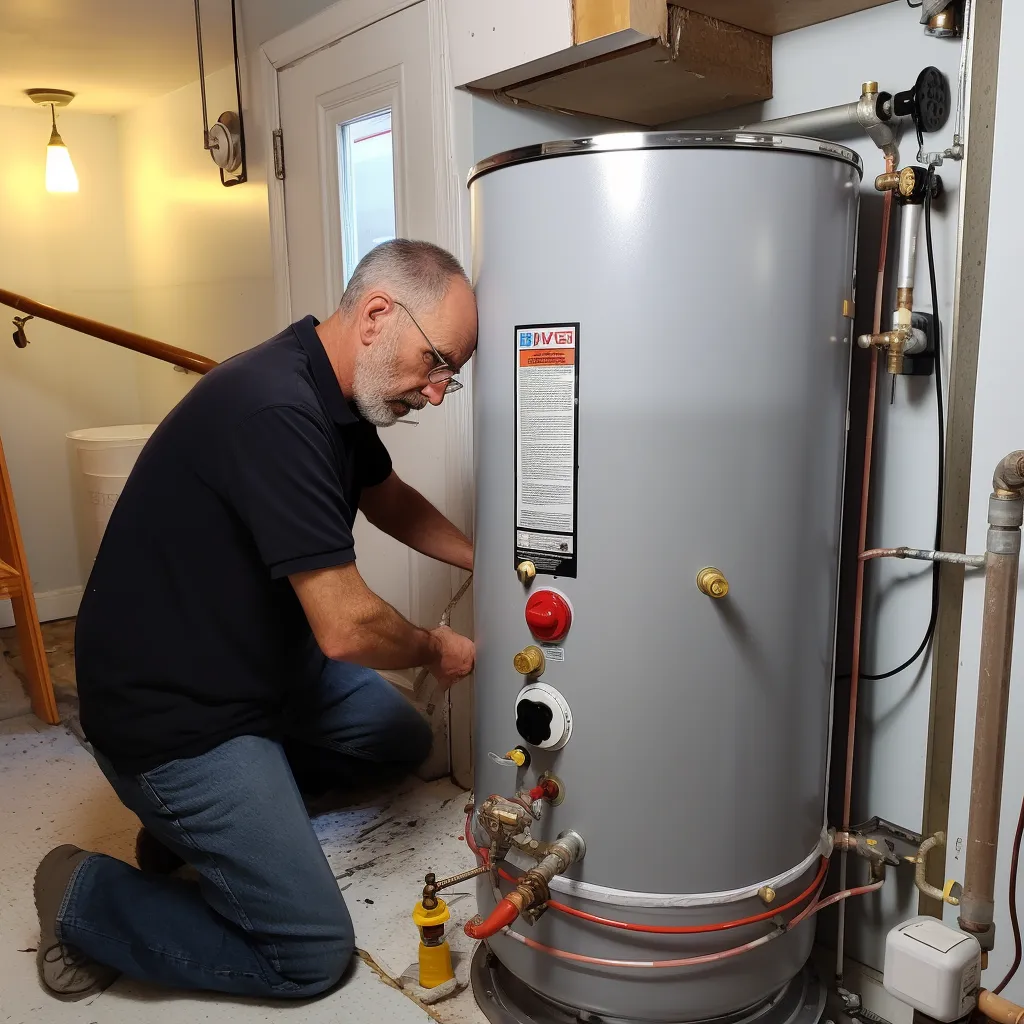
Research is important
Proper water heater maintenance is essential for both saving time and money. It involves closely monitoring key areas such as temperature, pressure, and connections. It is also crucial to regularly check for any signs of corrosion or sediment buildup. In addition, it is important to research and stay informed about any potential malfunctions that may occur. It is particularly beneficial to familiarize oneself with the different types of water heaters available and understand their specific maintenance requirements. This knowledge will enable homeowners to effectively care for their water heating system. While individual efforts can go a long way in maintaining a water heater, it is often wise to consult a licensed professional for verification and expert guidance. They possess the necessary expertise and experience to assess the overall health of the water heater and provide valuable recommendations for maintenance or repairs. By prioritizing water heater maintenance, homeowners can ensure optimal performance and longevity of the system, which in turn can lead to significant cost savings and enhanced efficiency.
Contact Us
GET IN FULL TOUCH
PHONE: (984) 223-8754
EMAIL:
david@waterheatersinraleigh.com
Almighty Plumbing
Raleigh, NC 27602
